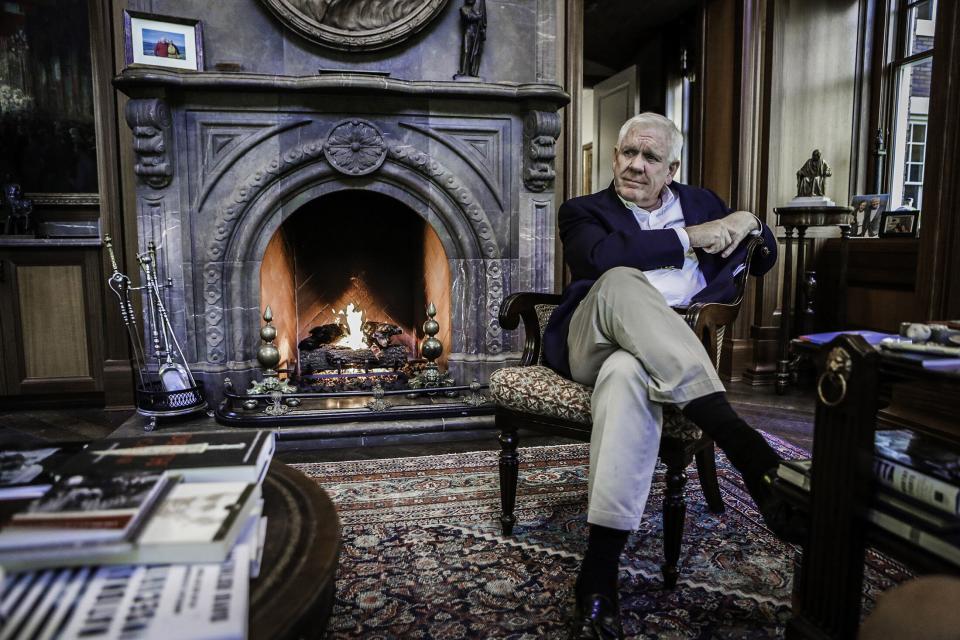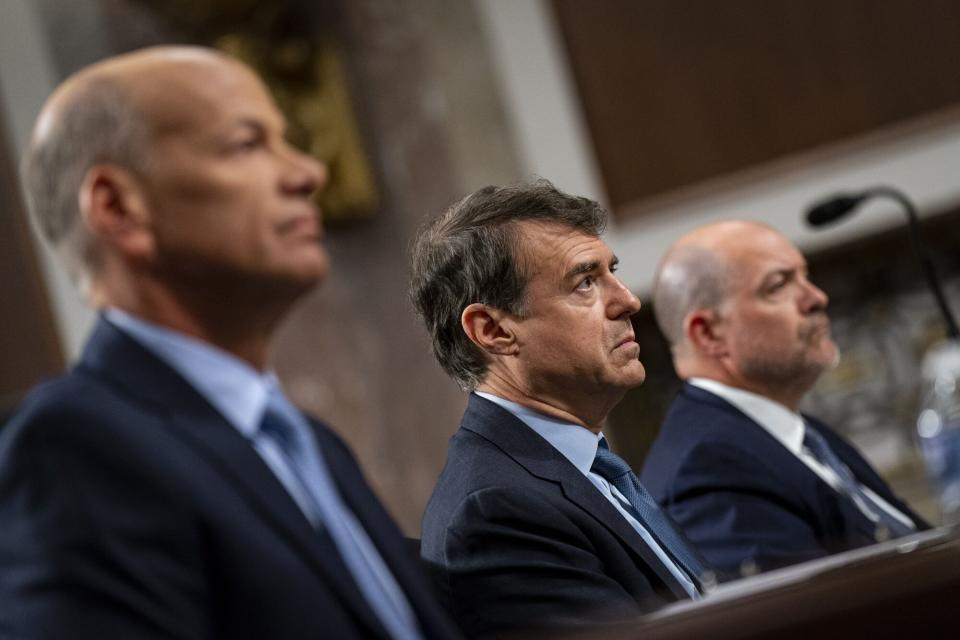Harlan Crow's Stonewalling Over Gifts to Justice Thomas Tests Senate's Power
(Bloomberg) -- Harlan Crow, the conservative billionaire who bestowed luxurious trips and private real estate deals on Supreme Court Justice Clarence Thomas and his family, is signaling a will to do what auto-industry chieftains and Wall Street titans dared not: defy a Senate subpoena.
Most Read from Bloomberg
Xi Tells Blinken ‘Very Good’ That Progress Made on US-China Ties
Florida Is Losing Its Affordability Edge After Drawing a Flood of New Arrivals
A subpoena hasn’t yet been issued, but the developing clash is setting up a test of a politically polarized Senate’s ability to wield one of its most powerful investigative tools. And it’s further evidence of the limits of Congress’ ability to pry loose information.
Crow’s emerging stance echoes the refusal of several allies of Donald Trump to provide telephone records and other information to the House panel investigating the Jan. 6 attack on the US Capitol. Those subpoenas prompted more than a dozen court fights and ultimately were withdrawn in the weeks before the committee’s final public meeting.
Crow, a Texas commercial real estate magnate, is similarly stonewalling. He has repeatedly refused demands from Democratic chairmen of two Senate committees for detailed information about gifts and transactions benefiting the conservative high court justice, declaring the activity no business of Congress. Democratic Senator Sheldon Whitehouse of Rhode Island, a senior member of both panels, said a subpoena “is highly likely in both cases.”
The responses Crow’s lawyers have given the committees so far amount to “go pound sand,” said Rob Kelner, a partner at the Washington office of Covington and Burling and co-leader of the firm’s congressional investigations practice.
A spokesman for Crow declined to comment. His legal team has met with one of the two committees.
The Senate’s authority to compel public testimony or production of documents has undergirded storied moments, from Estes Kefauver’s 1950s hearings on organized crime and Abraham Ribicoff’s 1960s investigation of auto safety to the grilling of Goldman Sachs then-chief executive Lloyd Blankfein and other Wall Street executives in the aftermath of the 2008 financial crash. Congress has broad power to issue subpoenas, as long as the inquiries relate to subjects on which it could act.
The possibility of subpoena also has loomed in cajoling recent public testimony from current and former CEOs of Starbucks Corp. on unfair labor practices, Norfolk Southern Corp. on the train derailment in East Palestine, Ohio, and Silicon Valley Bank on the financial institution’s failure.
The partisan cast of the controversy over Crow’s gifts and the increasingly common use of filibusters to thwart Senate action appears to be emboldening Crow and his advisers, Kelner said. If Crow doesn’t comply with a committee subpoena, the Senate would have to vote to take Crow to court to force him to turn over information. There is no precedent for filibustering such an action.
“They likely calculated that the votes won’t be there to overcome a filibuster and enforce a subpoena,” said Kelner, who isn’t involved in Crow’s case but regularly represents clients on congressional probes.
Such a precedent risks weakening Senate committees’ ability to uncover private-sector abuses and to force unwilling business executives to answer for conduct before the public, said Ronald Weich, a former legal counsel for Senator Ted Kennedy and later then-Senate Democratic Leader Harry Reid.
“If subpoena enforcement became a routine partisan exercise, it would be less valuable in the future,” Weich, now dean of the University of Baltimore law school, said.
Committees still have some leverage without a full Senate vote since the chairman can ask the Justice Department to prosecute someone who ignores a subpoena for contempt. But it is less expedient way to get information and the department often declines to pursue such cases.
Leaders of both the committees probing Crow’s gifts say they’re still weighing their options, with Judiciary Chair Dick Durbin of Illinois committee Democrats would likely unite behind the vote needed to issue a subpoena but that he wants to move in “a thoughtful, orderly way.” Finance Committee Chair Ron Wyden, an Oregon Democrat, said he’s having “productive discussions” with other Democrats on his committee on next steps “including by subpoena.”
Earlier: Justice Clarence Thomas Gets Extension for Financial Report
Crow’s ties to Thomas have been under scrutiny since ProPublica published several articles detailing luxury travel that Thomas received from the GOP donor, as well as a 2014 sale of three Thomas-family-owned Georgia properties to Crow. The real estate transactions and most of the hospitality weren’t reported on Thomas’ annual financial disclosures.
The calls for subpoenas come after letters in recent weeks from Crow’s attorney to both committees. Wyden had requested the billionaire’s legal team provide documents to the committee by June 2. The senator rejected arguments by his lawyers that the panel lacks jurisdiction to acquire personal tax information and travel records to examine whether any gifts to Thomas violated US tax law.
Crow lead attorney Michael D. Bopp continued to assert in response that the panel lacks “any legitimate legislative need” for the information.
The Senate hasn’t had to go to court to enforce a subpoena since 2016.
In that instance the Senate unanimously agreed to hold Carl Ferrer, the CEO of Backpage.com, in contempt over his refusal on First Amendment grounds to provide company documents and appear as a witness as part of a Senate inquiry into human trafficking. The Senate ultimately prevailed in court.
Most Read from Bloomberg Businessweek
Microsoft’s Sudden AI Dominance Is Scrambling Silicon Valley’s Power Structure
Airlines Are Rankled About Pratt & Whitney’s Jet Engine Problems
Private Credit’s Quiet, Unstoppable Rise Comes With Unknown Risk
©2023 Bloomberg L.P.

 Yahoo News
Yahoo News 


